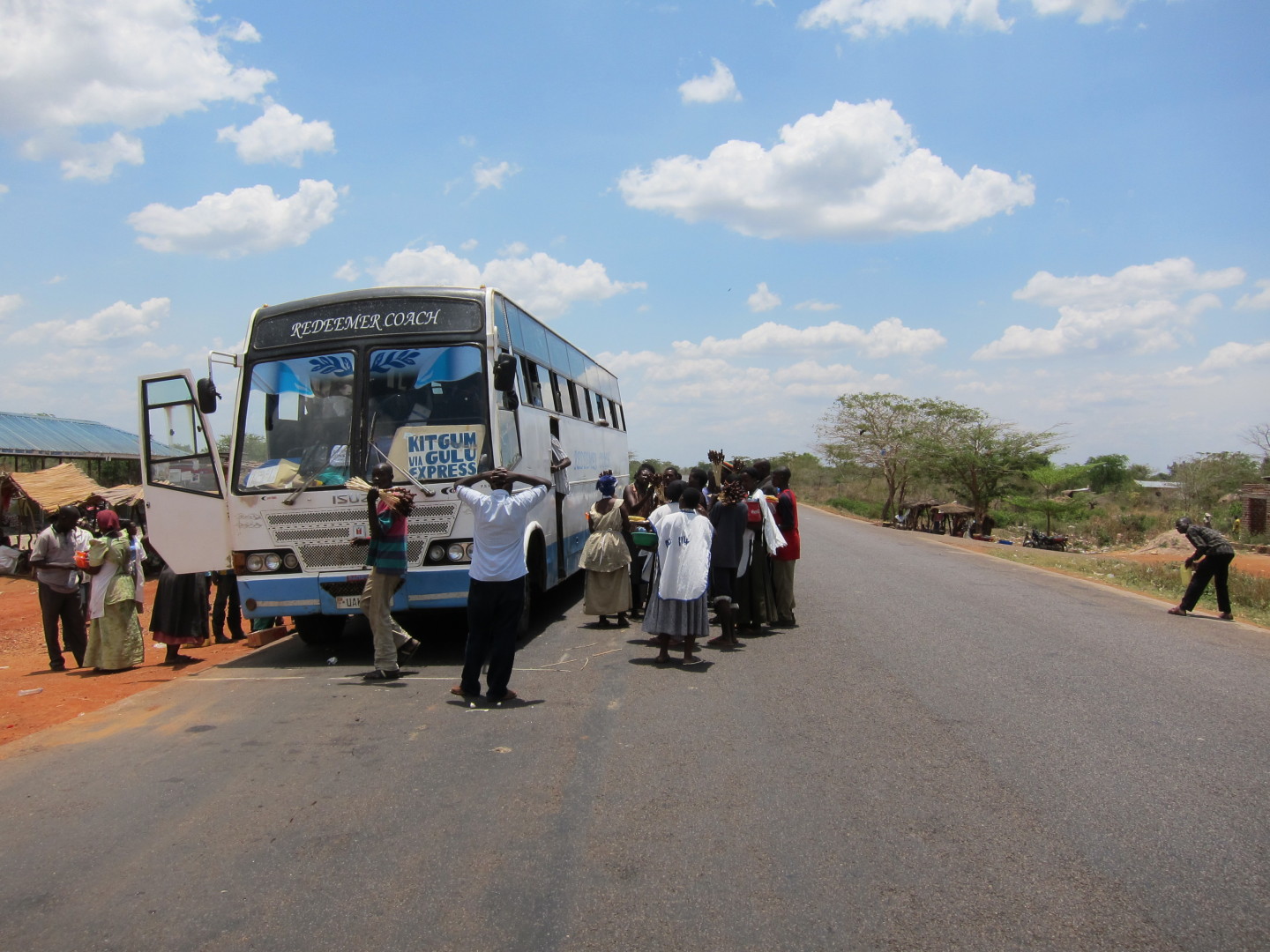
Imagine you get off a bus in rural Uganda. A guy walks up, takes the backpack you’re carrying out of your hand, and proceeds to walk off towards a nearby building. Is he trying to steal from you? Is he trying to scam you? Is he trying to help you?
I found myself in that very situation. Travel savvy people might immediately suspect a tourist tout. Before you jump to conclusions, keep in mind that I was a half day’s journey away from where anyone could reasonably expect a tourist on a semi-regular basis. It was the former heartland of warlord Joseph Kony. This makes things a bit more ambiguous.
In addition to wondering what the intentions of the ‘backpack snatcher’ are, there’s another question: am I capable of dealing with it? If he’s helping, do I have to rely on his help? If he’s a tourist tout, am I sure I can handle him? If you look at the potential for the situation and its outcomes, things look like this:
| He wants to help me (A) | He wants to harm me (B) | |
| I can handle it (1) | Everything is awesome. (A1) | Things are under control. (B1) |
| I can’t handle it (2) | Not ideal, but no harm done. (A2) | Fubar City. Population: Me. (B2) |
When the Ugandan took my bag, I sensed an annoying, persistent and potentially aggressive tourist tout, but also considered myself experienced enough to handle it. In the above matrix, that would put me in ‘B1’. Reacting this way was second nature to me. I have an inherent tendency to perceive my environment as potentially hostile. Not that I particularly assume bad intent from any specific individual, but rather that I consider the world a place that harbors a lot of threats.
The opposite mindset would be to perceive your environment as inherently helpful. It assists you with achieving your objectives rather than threatens your efforts. A new person you encounter is always a potential ally. This is definitely how I used to see things as a first-time traveler at the tender age of eighteen. If you perceive your environment as nice, it doesn’t matter as much how capable you are, whether you fall into ‘A1’ or ‘A2’.
As I accumulated life and travel experiences, I became more cautious. There’s always a first time you get scammed, a first time you get robbed, a first time you get sexually harassed by a doctor. This doesn’t necessarily lead me to be suspicious of any new person I encounter, but I’m acutely aware of the possibility. This awareness influences the perception of my environment. It leads to a more guarded, cautious and in some cases, even anxious mindset. I moved from A to B.
Unlike with ‘A1’ and ‘A2’, there’s a big difference between ‘B1’ and ‘B2’. Being confident that I can deal with the threats I encounter allows me to proceed in spite of those concerns. If I didn’t have this self-assurance and fell into ‘B2’, I might be too scared to go traveling in the first place.
Where does this self-assurance originate? Maybe nature, maybe nurture. It’s something that was always present. So much in fact, that rather than expanding it, I always struggled to contain it and stay away from arrogance and narcissism. The fact that you’re reading this on a website that carries my name tells you that I succeeded to a rather limited degree in that endeavor.
I’m not sure if it’s really possible to change your own perception of the environment. Or if it’s usually even necessary. After all, it’s close to impossible to objectively determine and validate the right level of caution on such a broad level. It does, however, make sense to know into which category you fall. Whether you are maybe too trusting or whether you might be overly cautious. This awareness can help with more rational and informed decision-making.
If you can’t change how you perceive the environment, what about how you perceive your own skill set? Is that something you can change? Note that I’m talking about your self-perception, which doesn’t necessarily reflect reality, only how it looks through your eyes. It’s not a case-by-case evaluation of whether your skill set suffices for a specific problem, but a general mindset. It’s what people commonly refer to as self-confidence.
How do you gain the necessary self-confidence if you don’t have it yet? One approach is laid out by Albert Ellis, creator of the rational emotive behavior therapy and author of’A Guide to Rational Living‘. Ellis has come up with the concept of ‘unconditional self-acceptance‘. The idea behind ‘unconditional self-acceptance’ is to start with accepting yourself, without the requirement to live up to internally or externally imposed standards. It’s not self-esteem or self-assurance, it’s self-acceptance with no prerequisites. It’s out of this self-acceptance that self-confidence can grow.
How do you perceive your environment? As hostile or friendly? If you think it’s hostile, can you handle it? If you have doubts about that, looking into universal self-acceptance might be a viable strategy for you to pursue.
So what happened at the bus station in Uganda?
Having decided the guy was trying to take advantage of me, I rushed after him. Before I had a chance to confront him, one of the other passengers told me that the guy was in fact his dad. He was trying to help. In fact, he carried my bag all the way to the national park office, where a single ranger sat at the only desk in a one room office. He figured this would be the guy that could help me more than anyone else in the village. So much for the environment being hostile.
Is it good to err on the side of caution? You can be the judge of that. Here’s a video I shot three days later from the back of a pickup truck. Not pictured: The park ranger with an AK47 next to me who was keeping an eye on things and saw things firmly in the ‘B1’ quadrant.

Great perspective. I think this B1 standpoint is actually what has kept me safe in possibly unsafe situations. The potential “bad guy” can sense this in someone, and the combo of confidence AND awareness makes it a “less worth it” situation for them. Also, IMO, makes you respected a bit more, even by some crazy and desperate possible thief.